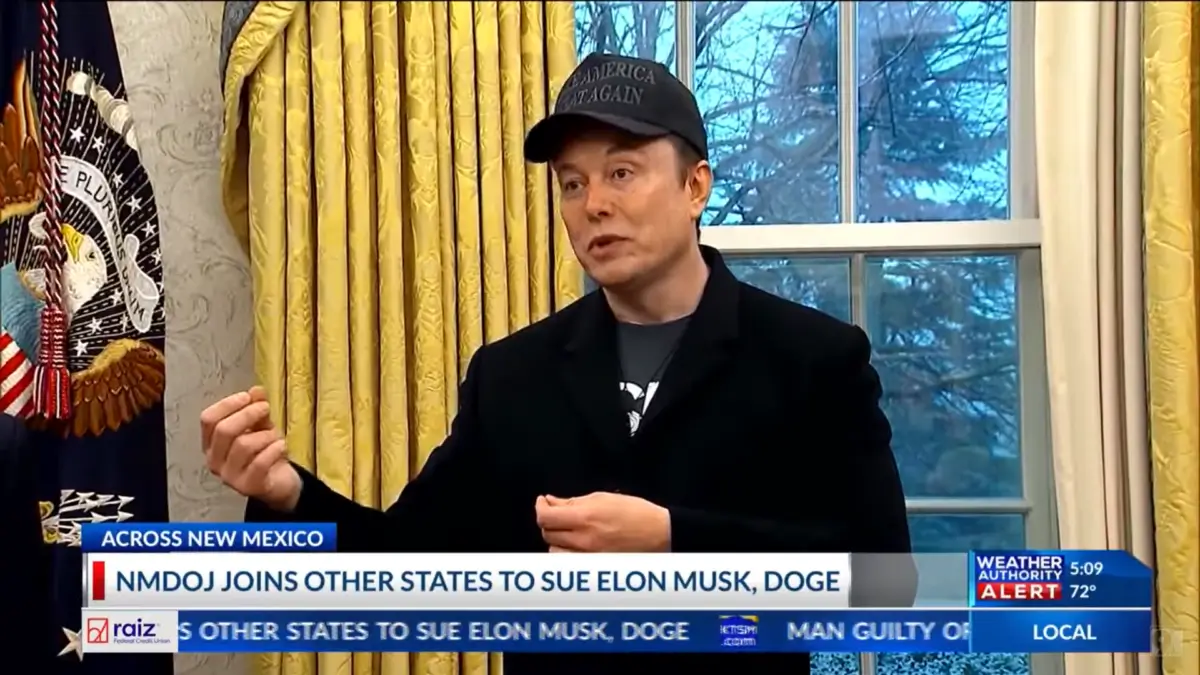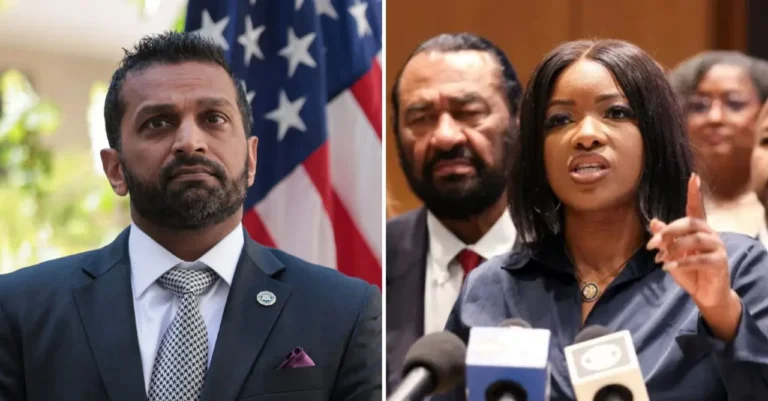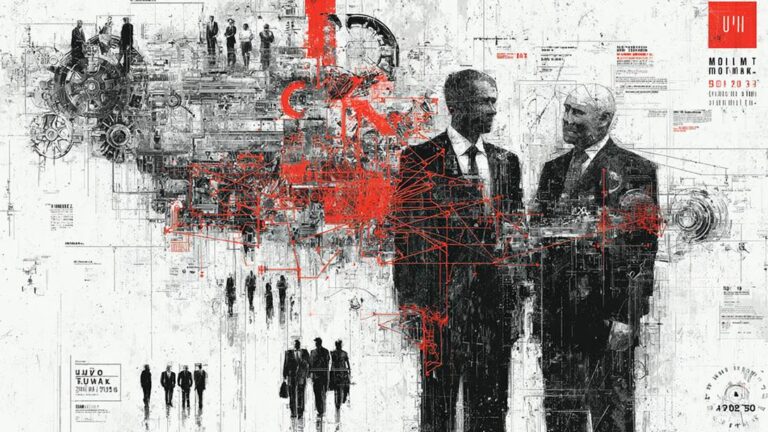More than a dozen blue states which sued Elon Musk and DOGE on Thursday will push for an injunction against the Trump Administration later this morning.
If granted, the temporary restraining order, or TRO, will immediately halt the president and the federal agencies’ ongoing efforts to cut waste, fraud, and the embedded members of the bureaucratic resistance.
And unlike the various TROs entered to date in other cases which served merely as paper nuisances, a TRO freezing out Musk and DOGE would be devasting — both to the president’s agenda and our constitutional structure.
On Thursday, fourteen states filed a lawsuit against Elon Musk, DOGE (the Department of Government Efficiency), and President Donald Trump in a federal district court in Washington, D.C. The lawsuit, New Mexico v. Musk, alleged Musk, “an unelected, unconfirmed government official, is exercising unprecedented executive authority in violation the Appointments Clause of the Constitution.”
Soon after, the Plaintiff States moved for an emergency TRO, asking the court to immediately enjoin Musk, DOGE, “along with personnel associated with these entities,” from accessing any data from the various federal agencies, freezing or canceling any federal grants or contracts, or taking steps to fire or place employees on administrative leave.
On Friday, federal judge Tanya S. Chutkan held a hearing on the states’ motion for a TRO. Following the hearing, Chutkan, the Barack Obama appointee who refused to dismiss Special Counsel Jack Smith’s indictment against Trump following the Supreme Court’s decision on presidential immunity, entered an order directing the states to redraft and narrow their proposed TRO by 5:00 p.m. on Saturday — timing which suggested that the judge intended to expeditiously enjoin the Trump Administration.
The Trump Administration sensed as much too, responding to the states’ proposed TRO within hours, entreating the Court to, if it “is inclined to grant the States’s request,” delay any action until it could hold a hearing on Monday morning, to “allow Defendants sufficient time to submit a fuller response.” On Sunday, apparently acquiescing to the brief delay, Judge Chutkan entered an order setting an 11:00 a.m. hearing on the case.
While the Trump Administration’s weekend response was, by necessity, abbreviated, it nonetheless concisely established why no injunction — much less the overbroad and legally unsupported version sought by the blue states — should be granted.
Indeed, the TRO the Plaintiff States proffered to the Court on Saturday would ban Musk, DOGE, “and their agents, officers, and employees, or anyone acting in active concert with them,” from accessing data systems and information at a variety of federal agencies, including the Office of Personnel Management and the Departments of Education, Labor, Health and Human Services, Energy, Transportation, and Commerce.
The proposed TRO would further prohibit Musk, DOGE, “and their agents, officers, and employees, or anyone acting in active concert with them,” from firing, furloughing, or otherwise placing on leave any employees working for those same agencies.
As the Trump Administration stressed in its Saturday night response, the language is so “exceedingly broad” that, as written, it would even ban the President and Senate-confirmed officials from accessing data or terminating federal employees if they collaborate with Musk or DOGE in the decision-making process. More fundamentally, the Trump Administration’s response continued, the proposed injunction was completely disconnected to the Plaintiffs’ legal theories.
While the Court will assuredly benefit from a more fulsome response from the government before it rules on the TRO, the Trump Administration’s weekend filing already hammered the two fatal flaws underlying the states’ request for injunctive relief: The Plaintiff States have failed to establish either a likelihood of success on their underlying legal claims or an imminent injury flowing from the Defendants’ allegedly illegal conduct.
CLICK HERE TO READ MORE FROM THE REPUBLICAN VOICE
Here, the Trump Administration focused on the legal claims the Plaintiff States alleged in their complaint. The states alleged two separate counts — one premised on an alleged violation of the Appointments Clause of the Constitution and another that asserted DOGE acted beyond its statutory power.
“Both claims — the constitutional one, and its statutory counterpart,” the Defendants stressed, are premised on Musk and DOGE having the “authority to make decisions for the U.S. government.”
“That premise is of course wrong,” the Trump Administration countered, explaining that the theory “rests entirely on conflating influence and authority.”
Said otherwise, while Musk and DOGE have influence on both the president and the various agencies and their Senate-confirmed heads, they lack any independent “authority” to execute the decisions of which the Plaintiff States complain, such as freezing or cutting spending or terminating federal employees. In fact, as the Trump Administration explained in its Saturday filing, “stripped of their lengthy rhetoric, the States do not actually cite a single example of where Elon Musk (or anyone at [DOGE] has been given formal authority to exercise the sovereign power of the United States.” To the contrary, the government continued, the “only—example of any tangible action even affecting the States is a single paused grant from USAID,” but the record shows that “those decisions were made by properly named officers at USAID who were ultimately acting pursuant to an executive order issued by the President — nowhere is there any governmental action taken in the name of [DOGE].”
While the Plaintiff States highlight Musk’s public statements and posts on X to the effect that he or DOGE ended programs or funding, Trump has made clear that his administration is reviewing and approving any suggestions made by Musk and DOGE — and then only when the president agrees with the recommendations. That fact, coupled with the Plaintiff States’ inability to present any specific instance where Musk or DOGE acted with independent authority concerning the decisions of which they complain, should be fatal to the motion for a TRO because without a grant of “authority” there is no violation of law.
To elaborate: The States allege Trump violated the Appointments Clause, which governs the President’s appointment of “Officers of the United States,” but that constitutional provision applies only to “officers” and not “employees.” And as the Supreme Court has made clear, to be an “officer,” an individual must (1) “occupy a ‘continuing’ position” that is part of the federal government for constitutional purposes and (2) “exercis[e] significant authority pursuant to the laws of the United States.”
Even if Musk and members of DOGE can be said to “occupy a ‘continuing’ position” — something debatable — their lack of authority to implement their recommendations renders them “employees” and not “officers” for purposes of the Appointments Clause. Accordingly, the states cannot show a likelihood of success on their Appointments Clause claim.
Similarly, the Plaintiffs are not likely to succeed on their second count which is premised on Musk and DOGE employees acting beyond the authority Congress gave the agency because that claim also presumes they hold authority to render decisions for the president or the agencies, rather than give advice.
Further, even if the Court were to presume Musk and DOGE hold some authority to cancel grants or fire employees, the states would still need to show that their authority caused some actual or imminent injury to them. To date, however, the states have failed to identify any specific harm caused by Musk or DOGE’s supposed exercise of unconstitutional authority, as opposed to injuries resulting from the decisions of Trump or the various agency heads. For this added reason, the Court should deny the TRO.
Whether the Court will do so, remains to be seen. However, there is also a third option beyond granting or denying the requested TRO, and one that seems probable given what we have seen other district courts do in response to challenges to the Trump Administration’s actions: enter a toothless TRO.
We saw that last week when two different district courts entered TROs that restrained the Trump Administration from freezing or canceling grants, except as allowed by statute, regulation, or the terms of the grants. As I detailed at the time, the exception provided for in the TRO swallowed the rule because federal contracts and grants uniformly provide the government may cancel the funding. Thus, while the headlines from last week create the appearance that the courts were barring the Trump Administration from cutting funding, in reality, the terms of the TROs had little impact on the functioning of the executive branch.
Given on Friday Judge Chutkan had directed the Plaintiff States to submit a narrower TRO, it seems likely she is inclined to grant an injunction. But the government’s briefing and further argument later this morning will make it difficult for her to ignore the blatant flaws in the blue states’ case. Under these circumstances, she may well see the best option is to enter a TRO that merely enjoins Musk and DOGE from cutting any funding or terminating any personnel — something they aren’t doing now according to the Trump Administration.
CLICK HERE TO READ MORE FROM THE REPUBLICAN VOICE
While such a TRO would still be improper because there is no evidence that Musk and DOGE are imminently prepared to exercise such authority, there would be no real harm to the Trump Administration. Conversely, granting the TRO as requested by the Plaintiff States would abruptly halt the administration’s agenda and would so severely step on the president’s Article II powers that an appellate court would hesitate to let such an order stand — even temporarily.
Judge Chutkan likely knows that too, which may well inform her decision later this morning when she hears further argument on Plaintiff States’ motion for a TRO.
source: thefederalist.com/democrats-lawfare-threatens-to-sideline-musk-and-doge/























